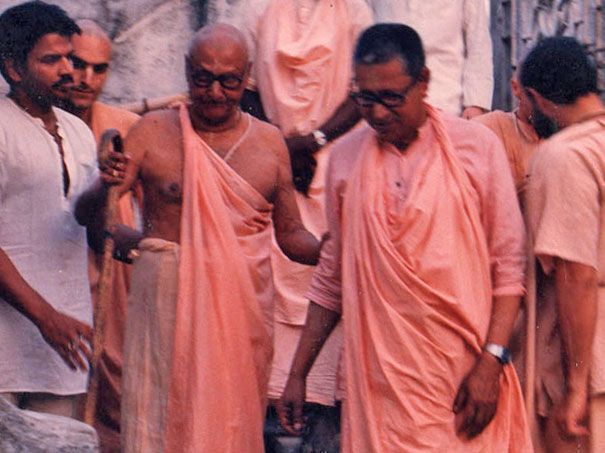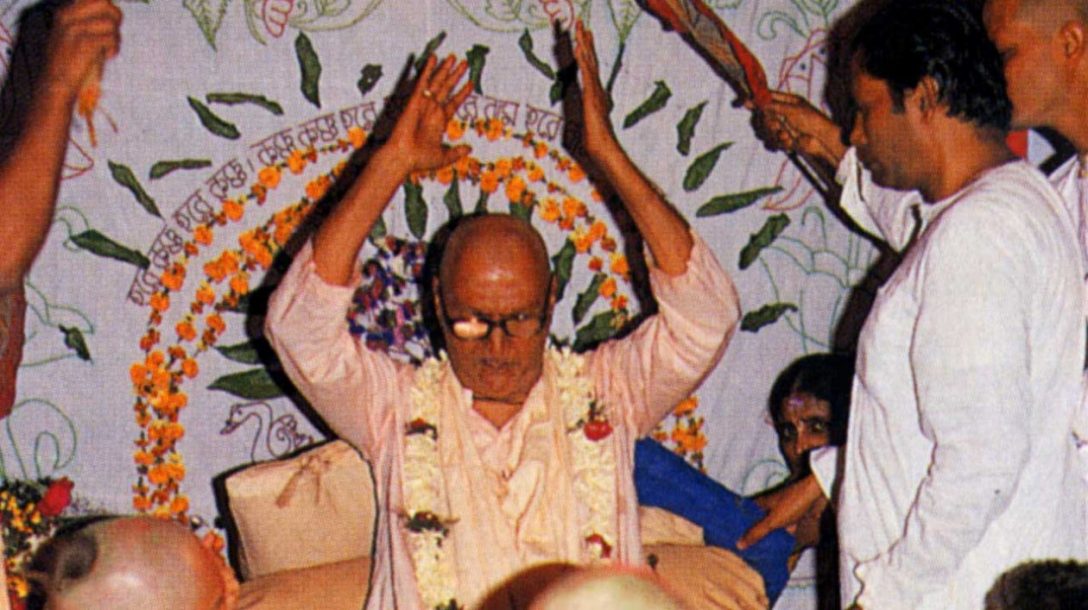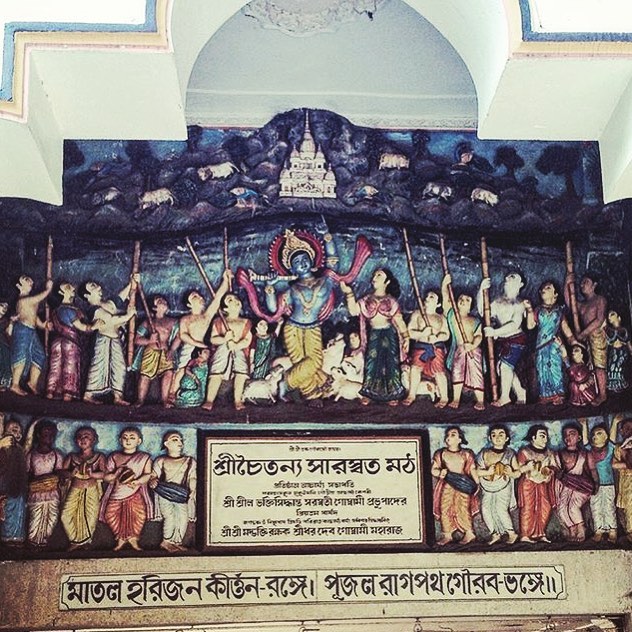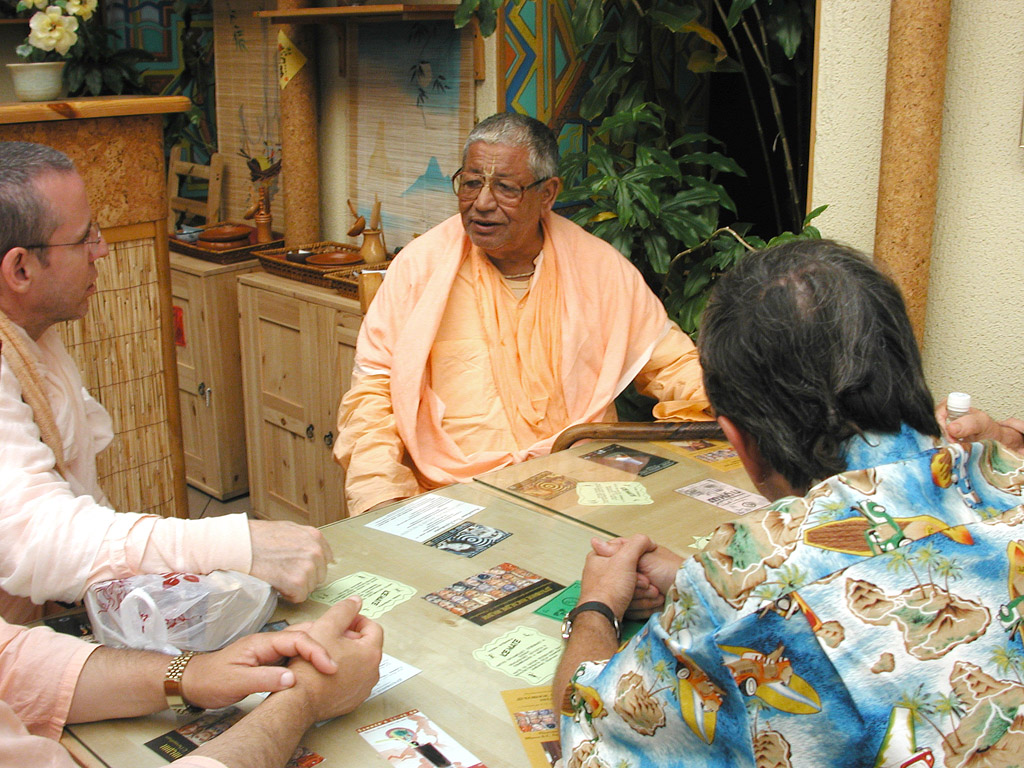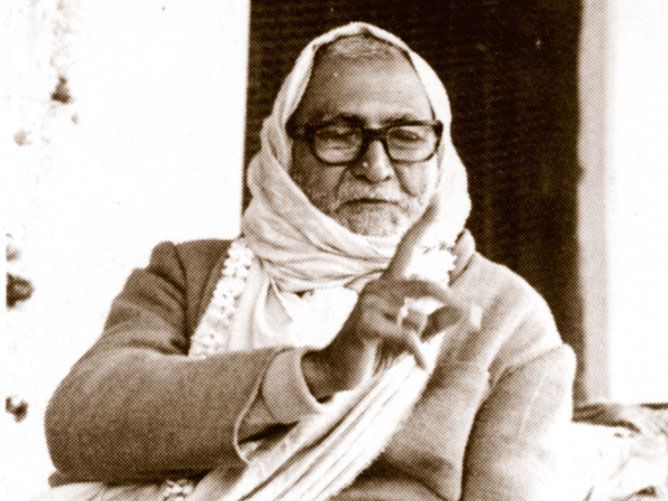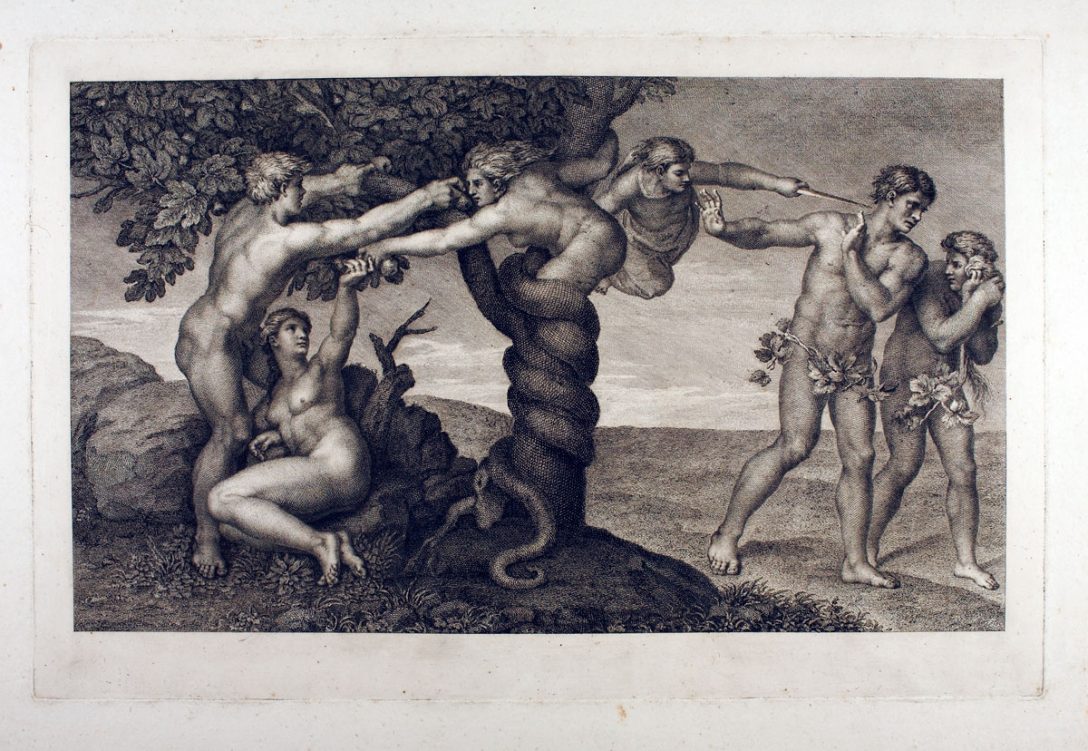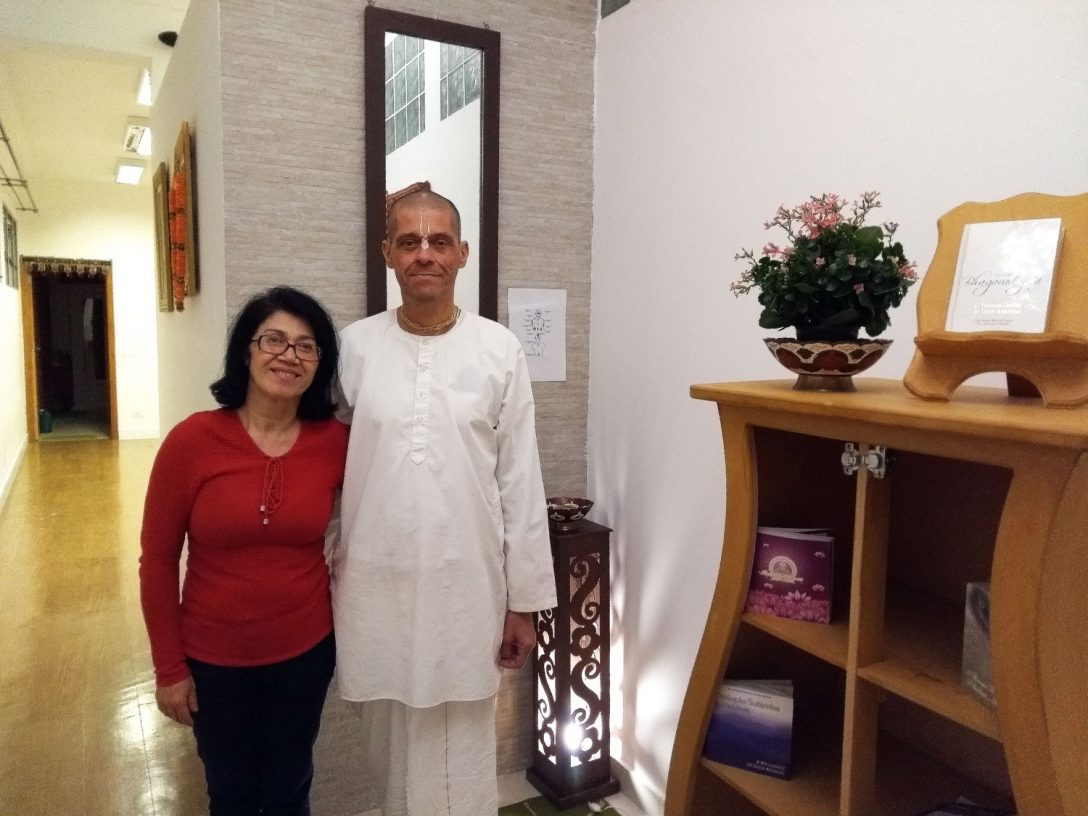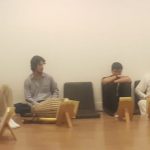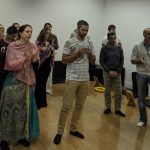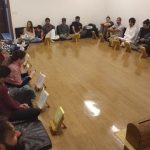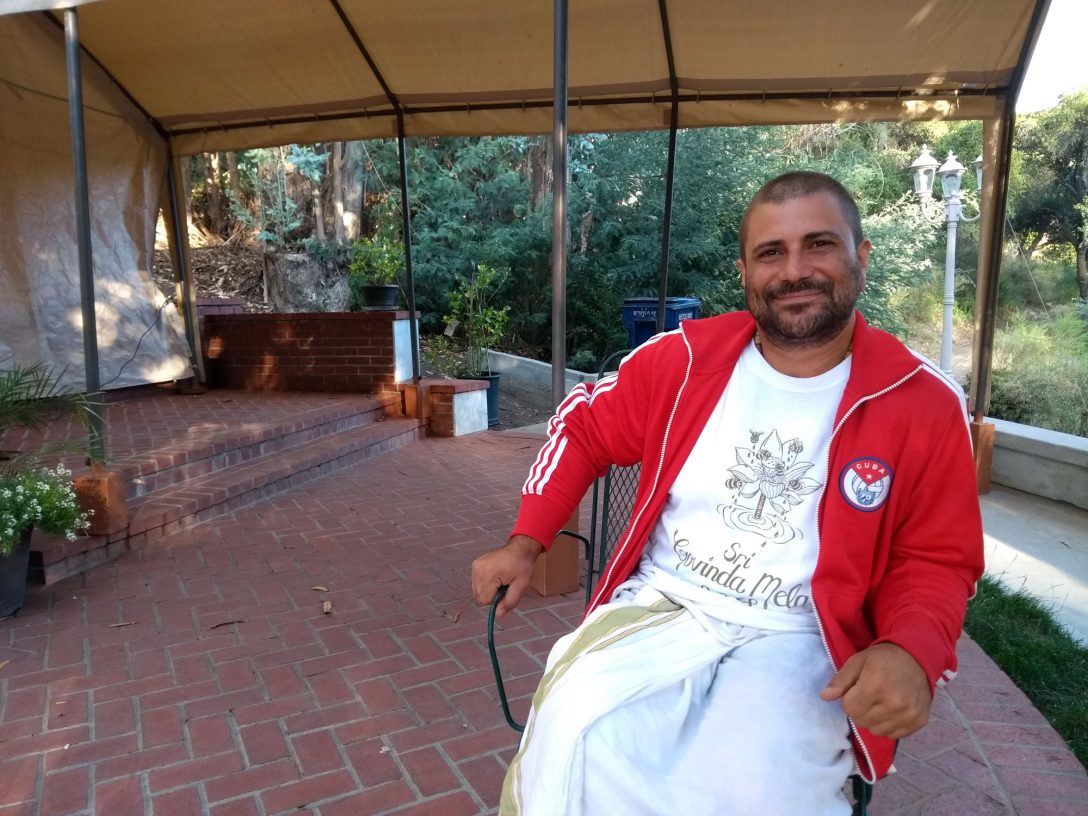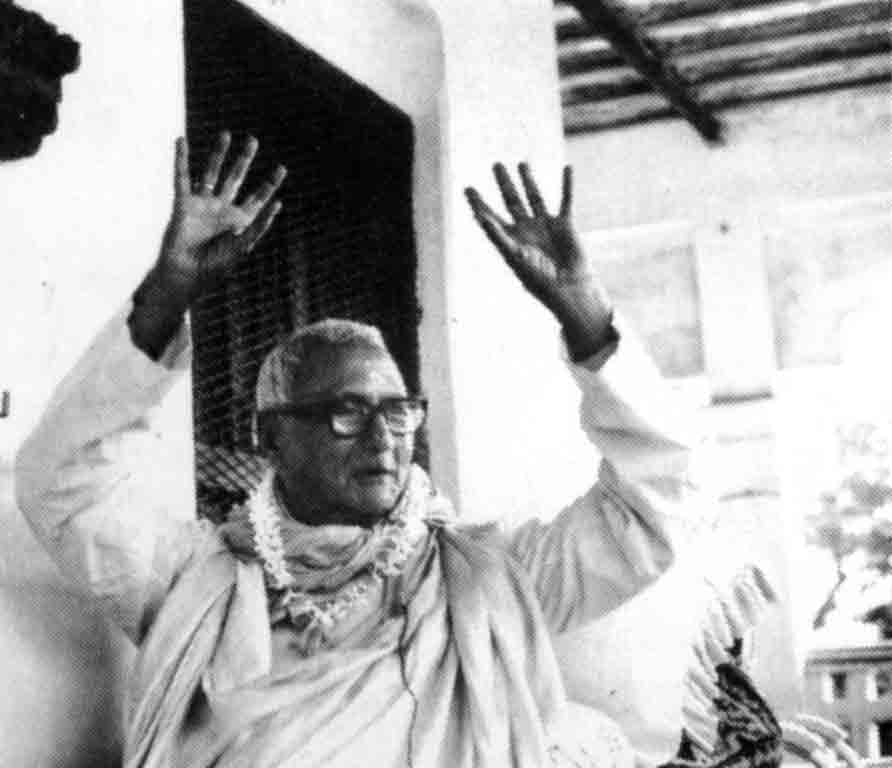I received this question in response to an article of Srila Gurudev’s posted awhile ago:
In regards to your recent post of Srila Gurudeva’s beautiful words of encouragement. Please could you explain to me this: here he says:
“Whatever is considered good and whatever is considered bad in this mundane world—everything is bad here. Maybe that is affection, or maybe that is enviousness. Maybe that is apparently good or bad, but everything is bad.”
Then, my question is: in other places we are hearing, that ‘Everything is good’ and that ‘every wave is favorable’… how shall we explain or harmonize these two?
I thought I would post my response here for the clarification of any others who may have had the same question:
In response to the points that you brought up:
Here Srila Gurudev is referring to everything coming from the wave of the material energy—not how we will perceive and respond to it.
Srila Gurudev quotes this famous verse of Sri Chaitanya-charitamrta (3.4.176),
‘dvaite’ bhadrābhadra-jñāna, saba — ‘manodharma’
‘ei bhāla, ei manda’, — ei saba ‘bhrama’
“In the material world, conceptions of good and bad are all mental speculations. Therefore, saying ‘This is good’ and ‘This is bad’ is all a mistake.”
And similarly in Srimad Bhagavad-gita it is repeatedly pointed out that everything pertaining to the material energy should be seen with equal vision because it is all standing on a false platform; it is all within the plane of mundane duality:
sukha-duḥkhe same kṛtvā lābhālābhau jayājayau
tato yuddhāya yujyasva naivaṁ pāpam avāpsyasi
(2.38)
“Considering pleasure and pain, gain and loss, and victory and defeat to be one and the same—fight. No sin will be incurred by you.”
vidyā-vinaya-sampanne brāhmaṇe gavi hastini
śuni chaiva śvapāke cha paṇḍitāḥ sama-darśinaḥ
(5.18)
“The humble sages, by virtue of true knowledge, see with equal vision a learned and gentle brāhmaṇa, a cow, an elephant, a dog and a dog-eater.”
From a devotional perspective, everything coming from the material wave, whatever the material energy has to offer to us, whether superficially good or bad (wealth, poverty, beauty, ugliness, fame, obscurity, etc) is of temporary value and will ultimately take us away from Krishna so it should all be seen as unfavourable.
Everything coming from the spiritual wave, on the other hand, is positive and to be embraced, because however it may manifest, whether apparently favourable or unfavourable, it is coming from the plane of truth and can thus adjust us to Reality the Beautiful.
As Srila Bhaktivinod Thakur sings in Atma-nivedana,
tomāra sevāya, duḥkha haya yata,
seo ta’ parama sukha
sevā-sukha-duḥkha, parama sampada,
nāśaye avidyā-duḥkha
“All the distress I encounter in Your service is also my greatest happiness. Both the distress and the happiness that come from engagement in Your service are my greatest fortune; they both destroy the distress of ignorance.”
As we’ve heard from Srila Sridhar Maharaj, Srila Bhakti Siddhanta Saraswati Thakur in his final days was fond of the expression “Religion is proper adjustment.” So, yes, “every wave is favourable”—with properly adjusted vision. It is all about in what interest what we see and experience is being considered. For example, say you receive a million dollar job offer from a big corporation. You could make a lot of money, but in order to do so you would have to give up all association, service, preaching, etc. Therefore through the lens of spiritual vision you may reject the proposal as being unfavourable to your devotional life. Or on a more base level, say somebody offers you a hamburger, or drugs, etc. A relative or an old friend who loves us dearly may want to sit and discuss many topics with us which are no longer of any interest to us. On a more subtle level, in our day-to-day service life we have to constantly discriminate and make decisions as to what is favourable and unfavourable.
Pratikulya vivarjanah, “Rejection of the unfavourable” is actually one of the six limbs of surrender so it is quite a crucial part of our devotional life. This whole process however is not contradictory to the concept that “every wave is favourable”. Srila Sridhar Maharaj defines progress as “elimination and new acceptance”. Through the devotional lens, in the interest of a higher truth, to reject something which otherwise may be considered favourable, actually clarifies and strengthens our own faith and conception. To assert, “No, I reject this as unfavourable to my spiritual life” is actually a supremely positive moment because it is an embrace of higher truth, it is an embrace of Guru and Gauranga and all they are trying to give us.
This idea that “every wave is favourable” is not something to be applied in a passive way. This is a dangerous way in which this concept can be applied. It is not that everything should be accepted at face value in a passive way. Rather everything must be seen in terms of the higher interest and at times in order to assert the higher interest we may need to resist the mayic flow. Perceiving the environment in terms of the higher interest may entail a fight at times. Someone is coming to attack or insult Guru and Vaishnava and I will sit passively because “every wave is favourable”? That response brings us to the Brahman conception. No, I must assert myself in their interest and protect them. I will see this as a service opportunity and in that way “every wave is favourable.”
So the tricky part is knowing when to respond to situations in a passive or active way. And there’s no ‘one size fits all’ here, we will have to consider on a case by case basis, also factoring in individual capacity and responsibility.
I hope this is somewhat helpful. I’m also reminded of this short article I wrote a couple years ago, which is somewhat related.
Humbly,
—Vishakha dasi.

